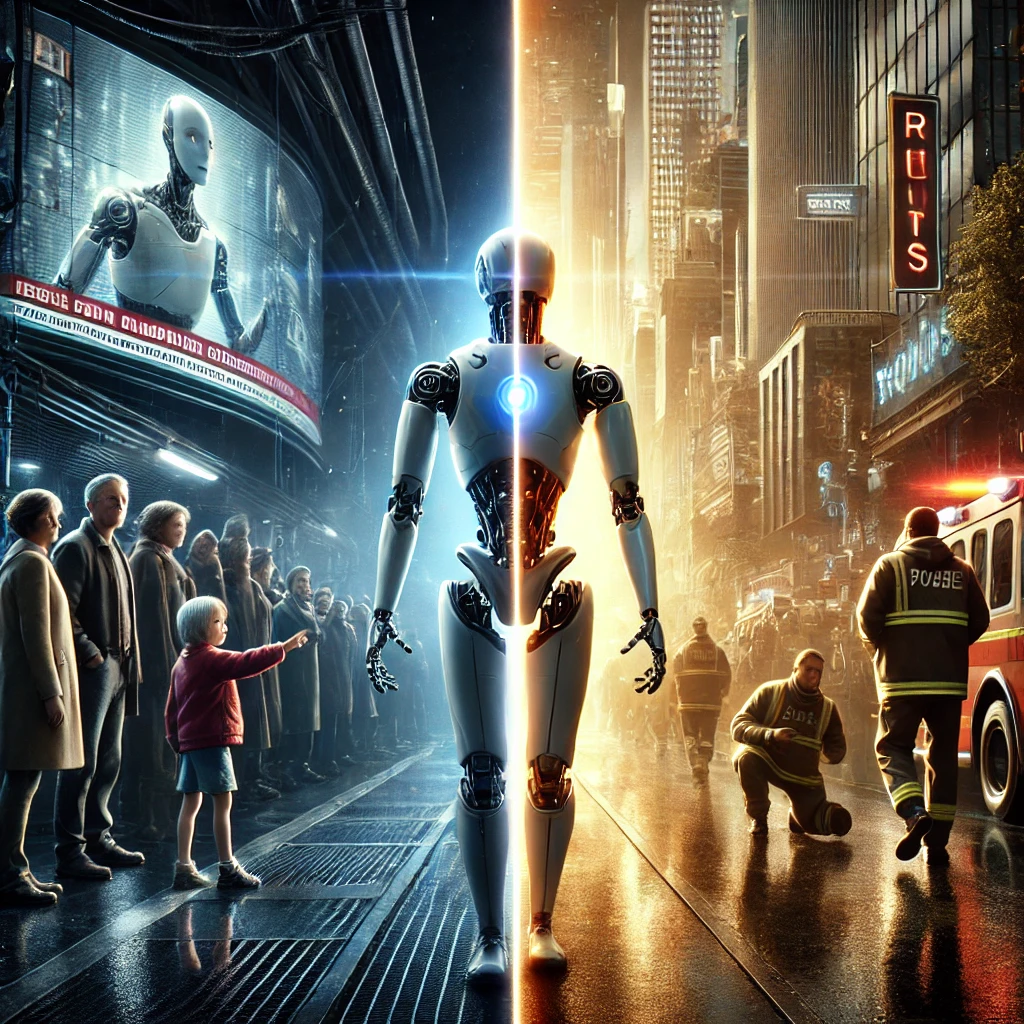The Changing Perception of AI: From Job Killer to Empowerment Tool
Artificial intelligence has been at the center of numerous discussions, with concerns growing around its potential to replace human jobs. However, LinkedIn co-founder Reid Hoffman presents a different perspective—AI is not a threat but a tool that enhances human capabilities. He describes AI as a “cognitive superpower,” a technology that can help individuals perform tasks with greater efficiency and creativity.
In a world where fear often overshadows opportunity, Hoffman’s insights provide a refreshing take on how AI is transforming industries while empowering professionals to achieve more than ever before.
AI as a Cognitive Superpower: What Does It Mean?
Hoffman highlights that AI should not be viewed as an autonomous job taker but as a cognitive collaborator. Instead of replacing humans, AI augments intelligence by assisting in tasks, automating repetitive processes, and offering novel insights.
By leveraging AI as a cognitive superpower, individuals and businesses can:
- Enhance creativity by using AI tools for brainstorming and content generation.
- Increase productivity by automating mundane, repetitive tasks.
- Improve decision-making with AI-driven analytics and predictions.
- Accelerate innovation by accessing vast amounts of processed information.
This shift in perspective underscores how humans and AI can work in harmony to achieve better results in various industries.
AI in the Workplace: Transformation, Not Replacement
The fear of job loss due to AI adoption is not unfounded. Many industries have witnessed automation taking over roles that were once manually performed. However, according to Hoffman, this transformation does not necessarily eliminate jobs—it changes them.
How AI Is Already Enhancing Job Roles:
Several industries have already incorporated AI to improve efficiency without removing human expertise. Examples include:
- Healthcare: AI-powered diagnostic tools assist doctors in detecting diseases earlier and with greater accuracy.
- Finance: AI analyzes financial trends, helping professionals make data-driven investment decisions.
- Marketing & Content Creation: AI generates insights into consumer behavior, optimizes ads, and even assists in content production.
- Customer Service: Chatbots and virtual assistants handle repetitive inquiries, allowing human agents to focus on complex issues.
The key takeaway? AI is not rendering humans obsolete; instead, it is empowering them with tools to focus on higher-value tasks.
The Role of Humans in an AI-Driven Future
With AI handling repetitive tasks, humans are freer to focus on creativity, problem-solving, and emotional intelligence—areas where AI still falls short. Jobs of the future will require a synergy between human intelligence and machine efficiency.
Skills That Will Be Highly Relevant in the AI Era:
As AI adoption increases, certain skills will remain in high demand:
- Critical Thinking: AI can provide data, but humans must interpret and apply it effectively.
- Creativity: While AI generates ideas, human creativity refines and innovates beyond algorithms.
- Emotional Intelligence: Human connection, empathy, and leadership will always be valuable in decision-making roles.
- AI Literacy: Understanding how AI works and how to collaborate with it will become essential in most careers.
People who embrace AI as an augmentation tool will have a competitive edge in this evolving job landscape.
Industries That AI Is Poised to Revolutionize
The rise of AI is not limited to a single industry—it is reshaping multiple fields, creating a wave of opportunities and innovations.
Top Sectors Benefiting from AI:
- Education: AI tutors and adaptive learning platforms provide personalized educational experiences.
- Healthcare: AI-powered diagnostics, robotic surgeries, and virtual health assistants enhance medical care.
- Entertainment: AI-generated scripts, music composition, and deepfake technology are expanding creative possibilities.
- Retail and E-commerce: AI-driven recommendations, chatbots, and autonomous deliveries are revolutionizing the shopping experience.
- Manufacturing: AI optimizes production lines, ensures quality control, and predicts maintenance needs.
As AI integrates deeper into these fields, professionals must learn to collaborate with technology rather than resist it.
Embracing AI: The Path Forward
The key to thriving in an AI-driven future is adaptability. Rather than fearing automation, individuals and businesses must proactively integrate AI tools into their workflows.
How to Make the Most of AI:
- Learn about AI technologies: Understanding AI fundamentals can help individuals leverage the technology to their advantage.
- Adopt AI as a productivity tool: Using AI assistants, automation software, and data analytics can increase efficiency.
- Reskill and upskill: Staying updated with the latest AI-driven skill sets ensures long-term career growth.
- Foster a growth mindset: Embracing change and innovation will make adaptation easier in an AI-driven workspace.
By recognizing AI as an ally rather than an adversary, professionals can harness its potential and create a future where humans and machines work in tandem.
Final Thoughts: AI as a Partner, Not a Threat
AI is not here to replace human talent—it is here to amplify it. Hoffman’s perspective challenges the common narrative that AI is a job killer, instead positioning it as a cognitive superpower for individuals and businesses.
As AI systems become more advanced, those who choose to collaborate with AI rather than fear it will unlock new levels of creativity, innovation, and efficiency. The future of work isn’t about machines replacing humans; it’s about humans enhancing their capabilities with the power of AI.
Are you ready to embrace AI as your cognitive superpower? Let us know how AI is transforming your work! 🚀


